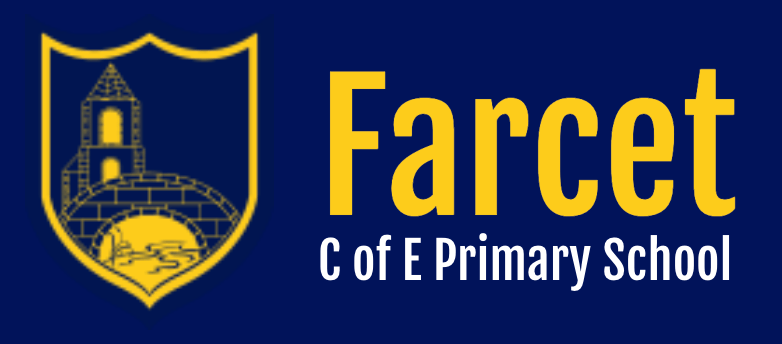
Let Your Light Shine Matthew 5:16
Intent
At Farcet C of E Primary School we recognise the importance of high-quality early years provision in ensuring that all children have the very best start to their school journey. We firmly believe that quality Early Years provision lays the foundations for future learning in the key stage one curriculum and beyond into lifelong learning. Therefore, we strive to provide rich learning experiences that build cultural capital and foster independence, problem solving, positive interactions and behaviour and a love of learning.
We have a clear pedagogical approach to the early years curriculum that is based on a balance of
adult led and child-initiated activities. The balance includes age-appropriate structured explicit
teaching which is adult led alongside adult guided learning activities, child-initiated provision and
enhanced provision. At Farcet C of E Primary School, we have developed a knowledge-rich, well sequenced curriculum, where knowledge is valued, specified and taught to be remembered.
Our curriculum is underpinned by the EYFS overarching principles:
· every child is a unique child, who is constantly learning and can be resilient, capable, confident and self-assured
• children learn to be strong and independent through positive relationships
• children learn and develop well in enabling environments with teaching and support from adults, who respond to their individual interests and needs and help them to build their learning over time. Children benefit from a strong partnership between practitioners and parents and/or carers.
• importance of learning and development. Children develop and learn at different rates.
Implementation
At Farcet C of E Primary School, we produce a long-term curriculum map which specifies when core knowledge, vocabulary and key developmental skills will be taught, with reference made to Development Matters. Careful consideration is made to when adult directed, adult guided, continuous and enhanced provision is planned, indoors and outdoors, and how this enables all children to develop and learn effectively. Practitioners also consider the individual needs and interests of each child, providing a balance of opportunities for children to direct their own learning alongside adult directed learning activities.
The development of early language and communication is a priority and is recognised as the key to success in every area of the curriculum. Practitioners are trained to be able to intervene effectively, observe and facilitate children interacting and learning, plan and provide for their next steps. They know how to model language and develop communication enabling children to secure knowledge and embed key skills. New knowledge is taught, learning is embedded and reinforced through thoughtful and selective use of provision and adult interaction.
Practitioners carefully plan provision for all children to build equity. On entry to the setting or at the beginning of a unit of work practitioners identify what children already know and can do. Scaffolds and adaptations are planned carefully into provision to ensure that the curriculum is accessible to all children using the indoor and outdoor environment, so that gaps do not appear or widen. Practitioners plan opportunities to revisit prior learning, pre-teach and build on existing knowledge and skills. During adult guided activities practitioners address misconceptions at the point of error, support children in making connections to develop schema, facilitating the development of skills and enabling children to know and remember more.
Furthermore, our early years provision ensures that curriculum planning includes motivating and purposeful opportunities to learn and develop both indoors and outdoors, in all areas of learning whilst prioritising adult and peer interaction and conversation, whilst facilitating physical development. We recognise the importance of the outdoor learning environment in supporting a child’s development. As such, the outdoor environment is carefully planned for, is language rich, with provision that further embeds or facilitates curriculum learning and development. The outdoor environment is seen as essential to early years development.
The EYFS statutory framework includes seven areas of learning and development that are equally important and inter-connected. However, three areas known as the prime areas are seen as particularly important and should be prioritised. Practitioners working with our youngest children focus principally on the three prime areas as these lay the foundations for later learning.
The prime areas are:
• Communication and language
• Physical development
• Personal, social and emotional development
The prime areas are strengthened and applied through four specific areas.
The specific areas are:
• Literacy
• Mathematics
• Understanding the world
• Expressive arts and design
Weaving throughout the EYFS curriculum are the Characteristics of Effective Teaching and Learning:
• playing and exploring - children investigate and experience things, they ‘have a go’
• active learning - children concentrate and keep on trying if they encounter difficulties, they
enjoy achievements
• creating and thinking critically - children have and develop their own ideas, make links between
ideas, they develop strategies for doing things
These elements underpin how practitioners reflect on each child’s development, adjusting practice
and provision accordingly.
We recognise that children learn and develop well when there is a strong partnership between practitioners, children and parents/carers. Every effort is made to reflect on and improve transition arrangements and plan positive engagement opportunities for new families. We foster and nurture strong partnerships with families.
We plan early induction opportunities such as:
• parent/carer information sessions
• welcome meetings
• transition sessions/days
• induction booklets and activities
• tours
• home visits
• setting visits
• stay and play sessions
• Learning conversations - Dojo, celebration assemblies
• open door approaches
• parent consultations
Impact
We teach an ambitious, planned and sequenced, knowledge-rich curriculum. The curriculum is the progression model which begins in EYFS, designed to teach foundational knowledge in the early years that forms the bedrock on which later learning in key stage one and two builds. The curriculum has been designed to encourage children to build resilience, ambition, and integrity. It is designed progressively from early years to ensure that children have time to embed knowledge and basic skills that are developmentally appropriate, in preparation for later learning.
